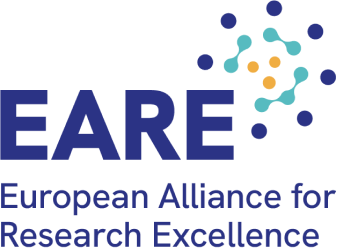EARE position on the upcoming Apply AI Strategy
EARE position on the upcoming Apply AI Strategy
EARE welcomes the opportunity to contribute to the upcoming Apply AI Strategy. We commend the Commission’s commitment to making Europe a global AI leader and its efforts to reduce regulatory burdens to support researchers, startups and innovators.
Yet challenges remain. The global race for AI leadership is intensifying: the US, China, Japan and Singapore are advancing rapidly through innovation-friendly policies. To avoid falling behind, Europe must ensure it can compete on an equal footing.
The strategy must address the challenges facing researchers and innovators:
- Limited access to data hinders innovation
Access to large, diverse datasets is essential for effective AI training and development. Yet, researchers face barriers due to paywalls, copyright restrictions, and technological protection measures (TPMs), which can introduce bias and limit research quality. Introducing Secondary publishing rights (SPRs) at the EU level could also expand data access, improving Europe’s competitiveness and innovation capacity. Today, a substantial portion of publicly funded research remains behind paywalls, despite being taxpayers-funded. SPRs would allow researchers to republish their work in open repositories after a short embargo, improving transparency, reproducibility, and the quality of datasets used in AI development.
Our recommendation: Any future strategy should prioritize access to large, diverse, and high-quality datasets, particularly for researchers, startups, and innovators. Open access accelerates innovation. EARE calls for data to be “as open as possible, as closed as necessary”.
- Strong TDM rights support AI development
TDM is vital for AI and scientific research. Articles 3 and 4 of the DSM Directive provide TDM exceptions that balance innovation with rightsholder interests. This creates a good balance between fostering innovation and protecting rightsholders’ interests – even if it is not ideal from every perspective. The increasing push toward licensing schemes, such as mandatory or extended collective licensing, could reduce the availability of data by turning freely usable content into licensed material, creating new barriers for access and reuse. This would disproportionately affect research and SMEs and startups, compared to peers in other countries, where copyright laws better support innovation.
Our recommendation: Strengthen the TDM exceptions in the DSM Directive to support a competitive AI ecosystem. EARE supports the introduction of a broad and harmonized TDM exception that applies to non-commercial and commercial uses. The EU should avoid restrictive licensing frameworks and instead explore alternative models for creator remuneration that do not impede research and innovation.
- Outdated commercial vs. non-commercial distinction hinders AI development
Limiting TDM exceptions in AI training to non-commercial use creates significant legal uncertainty, notably in public-private partnerships or when non-commercial research leads to commercial outcomes (e.g. medical innovations). This disproportionately affects startups and SMEs, which rely on such collaborations to bring innovation to the market. It restricts AI training, hinders innovation, and delays the translation of research into real-world applications.
Our recommendation: Move beyond the outdated distinction between commercial and non-commercial research. Countries like Japan, Singapore and the US, which maintain a thriving creative industry, have already implemented this shift.
Conclusion
AI is a transformative opportunity for Europe, not a threat. To stay competitive, the EU must align its policies with today’s reality, where collaboration between academia, startups and industry is essential. A modern legal framework can and should support scientific advancements and innovation in ways that drive concrete benefits across industries and sectors, empowering European startups, without being parasitic to creative works or a rich creative commons.
You can download our full position here.
About EARE: The European Alliance for Research Excellence (EARE) was convened in 2017, and now brings together eight members from the research and innovation ecosystem in Europe, including BSA | The Software Alliance, Allied for Startups, LIBER, EBLIDA, LACA, Research Libraries UK, SCONUL (Society of College, National and University Libraries) and UCL (University College London) Library, advocating for the EU to live up to its innovation potential in the digital economy.


